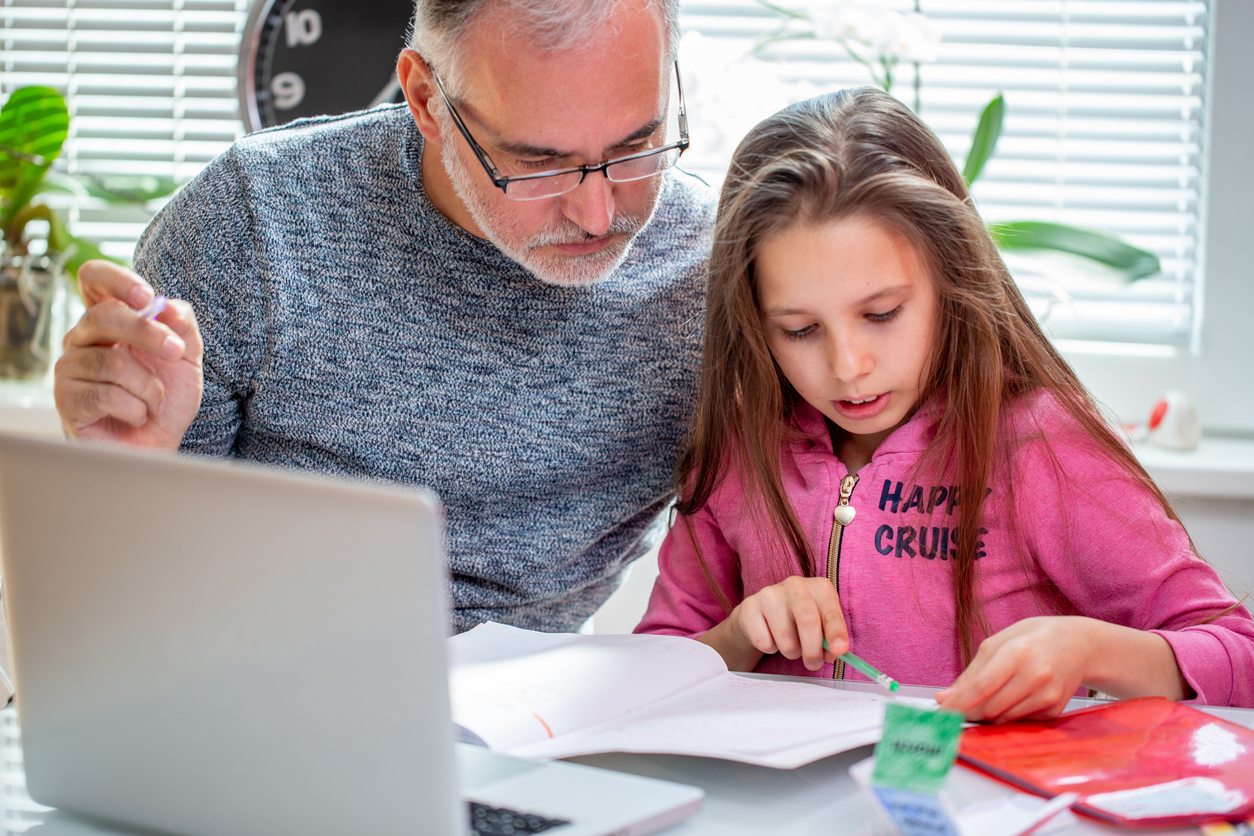The educational system in the United States suffered problems and shortcomings long before COVID-19 became a problem in almost every aspect of our lives. We don’t need to remember back very far to recall the time before Coronavirus. Most of us didn’t even consider the virus a threat in November 2019. Now, dealing with the virus brings on life and death connotations for our citizens and institutions’ health. The educational system remains one of its most vulnerable victims.
Not All Children Have Equal Opportunities
By March of 2020, over 50 million young students suddenly needed to transition from the traditional brick and mortar classroom to an online educational platform. Many of the schools fell into the situation with little or no preparation.
Though we may think of the younger generation as computer savvy, in reality, over 10 million children in the country don’t possess WIFI in their homes or a computer or other device in which to access it.
How Parents Encourage Learning
Even a well-equipped household faces challenges when it comes to encouraging children to learn. Pandemic or not, essential steps exist that will help children realize the importance and joy of learning. Don’t limit your child’s education to the classroom, whether online or traditional. Consider the following recommendations:
- Encourage your child to read everything: novels, magazines, newspapers, posters, road signs, and more.
- Make sure children know the importance of self-expression.
- Demonstrate how much you love learning and make an effort to learn something new.
- Provide learning opportunities on road trips, beach days, or excursions to museums and cultural events.
- Make sure your kids know the value of lifelong learning.
- When discussing school at the dinner table, ask them what they learned, not what grade they received on a test or project.
- Focus on their passions and interest and help them build on that passion with information.
- Celebrate accomplishments with appropriate awards.
- Show your kids that every day presents an opportunity to learn something new.
The Absence of Learning During COVID-19
As previously mentioned, students and teachers alike suddenly found themselves in an unexpected situation when it became undeniable schools could not continue with the spread of the virus.
Teachers tried to replicate the learning experience in the classroom to the online platform. More attention needs to go toward the adaptation of teaching and learning online. The adjustment proved difficult for many teachers. Teachers often need also to educate their own children. Often they live in small houses and apartments with limited internet and privacy. Teachers also learn along the way and often feel a loss of control when it comes to relating to students and accomplishing their goals.
Many students don’t take learning during lockdown periods seriously or dismiss it altogether. Some of the reasons learning during the pandemic suffers disturbances include the following:
- Their parents qualify as essential workers leaving them under or unsupervised
- They need to take care of younger siblings
- They live in a chaotic situation with extended family or possibly an abusive environment
- The student suffers anxiety over the physical absence of teachers and classmates
Around the globe, natural disasters and societal disruptions previously displayed how children suddenly experiencing the loss of the classroom regimen plays havoc on their educational career and, ultimately, their future.
After Hurricane Katrina, nearly 372, 000 children found themselves displaced as over 100 public schools closed. In the late 1980s and early 1990s, the teacher strikes in Argentina put students at a tremendous disadvantage. While the possibility to ‘catch up’ exists, scenarios like this often result in fewer college degrees, more unemployment, and even an increase in mental health problems.
Due to the far-reaching global impact, we should expect far worse numbers when it comes to educational downfalls, including low math and literacy scores.
How We Can Help Your Child Learn During COVID-19
At Tenney School, our Flexible Hybrid program sets your child up for success during the 2020/2021 school year. Our staff and teachers train rigorously to provide a three-mode educational model that will adapt to changes in public health situations.
The first mode continues the principle of the importance of one on one education and how individualized attention remains a significant philosophy of our approach. Next, the second mode involves small in-person classrooms with proper safety measures and social distancing in place. Lastly, the third mode of multi-purpose learning will often consist of live remote learning due to the larger number of students.
Of course, our primary concern lies with the health and safety of our students and staff. If directed by authorities or circumstance, Tenney Schools will proceed completely online until we know the classroom or in-person situation qualifies as safe.
We stand prepared to provide individualized and superior education throughout COVID-19. For more information on our COVID-19 response, please contact us here.


